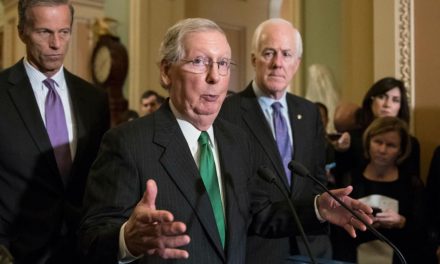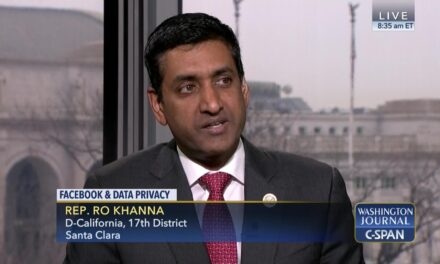It’s unfortunate that Margaret Carlson wrote this piece for the Washington Monthly on the erroneous assumption that Rep. Marjorie Taylor-Greene would not bring a motion to depose Mike Johnson from the Speaker of the House’s chair. It’s otherwise well-reasoned and well-written, albeit perhaps a bit too hagiographic about Johnson for my taste.
Of course, Carlson’s mistake was understandable. When Greene brought her motion on Wednesday, it came as a surprise to almost everyone. That’s because it had been obvious for some time that the motion would fail and it was clear that Donald Trump did not want her to go forward. And it did resoundingly fail in a 43-259 vote with seven Democrats voting ‘present.’ While only ten Republicans joined Greene in voting to remove Johnson, this was more than voted against Kevin McCarthy when he was defenestrated in 2023. This time, however, Johnson was saved by the Democrats.
And so now we have officially arrived where I said we would arrive beginning way back before McCarthy even won the Speaker’s gavel after a protracted fight in January 2023. We have a bipartisan Speaker. Not only do we have a Speaker elected by a cross-section of Democrats and Republicans, but all the major legislative accomplishments of this Speaker have been accomplished with mostly Democratic votes.
This is just a fact, and Greene is correct when she points it out:
On Thursday, Ms Greene posted on X, formerly Twitter: “Democrats voted to save Johnson because they knew it was impossible to take control of the House.
“They want to keep Johnson because he’s given them everything they want… The good news this morning is now the American people have been shown the truth.”
She made the same argument in more detail during the congressional debate over her motion to vacate:
…Ms Greene stood on the House floor and criticised Mr Johnson for a series of compromises he has struck with Democrats, who hold a majority in the Senate.
“This is the ‘uniparty’ for the American people watching,” she said of politicians in the chamber as they booed her.
“By passing the Democrats’ agenda and handcuffing the Republicans’ ability and influence legislation, our elected Republican Speaker Mike Johnson has aided and abetted the Democrats and the Biden administration in destroying our country,” she added.
What Johnson has actually done, much like McCarthy before him, is recognize that the government must pay its bills on time or face an apocalyptic credit default, and that it must pass its spending bills or the government will shut down and be unable to function. Johnson also came to agree with the Biden administration that the United States must provide foreign and military aid to our allies, and that the intelligence community needs certain foreign surveillance powers. He could do none of these things if he relied only on Republican votes. In some cases, he couldn’t rely on even half of his own caucus for support.
So, Johnson did the only thing he could do to avoid national catastrophe and passed the legislation with the help of Democrats. These are the same choices I correctly predicted McCarthy make when I said he’d lose the Speakership before 2023 was complete. In the case of Johnson, I assumed he would rather resign than serve at the Democratic Party’s pleasure, but it turned out that Trump and his realist advisers judged that in an election year its better to have a crippled and coopted Speaker than no Speaker at all.
It’s a rare savvy move by the Republican braintrust, but it isn’t rocket science. It took weeks for the House GOP to settle on Johnson to replace McCarthy, and their majority is now down to one seat. They might not ever agree on a replacement for Johnson, and the House cannot function without a Speaker. In September, there will be more must-pass spending bills, and it’s simply not a good look for the government to be unable to pass legislation for months on end because the Republicans cannot elect anyone to lead.
So, the official position of the Republican nominee for president, and therefore the official position of the Republican Party, is that it’s okay for a GOP-majority House caucus to have a bipartisan Speaker elected and supported by a mostly Democratic caucus. After all, they don’t have preferable alternatives.
The Democrats now own Mike Johnson, and to drive home the point they’re making no promises to save him if he is again challenged by a motion to vacate. In other words, Johnson is serving only so long as he behaves himself, and that’s not what is expected of a Republican Speaker in a presidential election year.
Greene is correct to call this situation a “uniparty,” but she really doesn’t understand the merits. In the American two-party non-parliamentary system, the parties can fight like rabid dogs but there are certain core things they need to agree about. First and foremost is that we maintain a good credit rating and avoid a self-inflicted global depression by paying our bills on time. Secondly, that we hash out our government spending bills, no matter how painful the compromises, rather than allowing the government to shutter for any extended period of time. The various government departments must be funded and overseen by a bipartisan congressional group that actually supports those departments. Thirdly, we have to have some overarching foreign policy consensus, whether that’s supporting the enemies of fascism, opposing Cold War totalitarianism, or standing up to Vladimir Putin’s murderous klept0state. And, fourthly, (and this one is currently in real peril) that we have some consensus about what the Constitution means, and what rights it confers and how power will be determined and transferred.
This kind of uniparty consensus has its downsides, nowhere more than when the consensus gets off track seeks to punish or silence dissenters. We all know the excesses of McCarthyism or the colossal miscalculations that led to the Vietnam disaster. We lived through the horrible reaction to 9/11. The uniparty isn’t right all the time, and its record has often been terrible. But our system does rely on a basic steady root of agreement that doesn’t shift suddenly with every political gust.
It’s probably precisely because the uniparty had a string of failures from 9/11 to Iraq and Afghanistan to Katrina and the Great Recession that led to an appetite for an unqualified outsider who would come in, insult everyone and everything, and blow up all the norms and assumptions. But this isn’t how to fix our system. It throws out all the things people depend upon and disrupts all the things that are real strengths of our system without having replacements. To fix the system, sometimes we have to learn the hard way. But a real leader can change things by identifying the excesses or the false steps and changing the establishment’s assumptions.
What’s happened with McCarthy and Johnson has always been partly about math. The Republicans won a House majority in the 2022 midterms, but on paper only. They never had enough votes to govern without Democratic help. But, in another sense, what we’ve seen is an expression of a bipartisan “uniparty” establishment consensus that is flexing its muscles in the face of withering attack by Trump and MAGAism and just plain fantastic, illogical, impossible reasoning by the right-wing opinion manufacturers.
Greene expects Republican Speakers to default on our debt, shut down the government, set the foreign policy of the president and ignore the demands of the intelligence community. She expects the Speaker to pass Republican bills when he doesn’t have the votes to pass them without Democratic help. These are magical demands, and the great value of the uniparty during divided government is that they only do what is possible and necessary. If it were not for them, necessary things would not get done and Americans would dramatically suffer as a result.
It’s telling that even Trump doesn’t want to risk a nonfunctional uniparty in the House, at least not when he’s actively running for office. My predictions are really driven by examining what is necessary and then predicting how the necessary things will eventually get done and what the fallout of that will be for partisan leaders. That’s how I knew McCarthy would not last a year, and it’s how I knew Johnson would follow McCarthy’s path and find himself challenged. I did not predict that Johnson would accept the position of Speaker of a mostly Democratic caucus, but since that is what Trump wants he has permission to do it.
Anyway, this is why you read this blog. Where else were you told 17 months ahead of time that we would have a bipartisan Speaker in this Congress?







